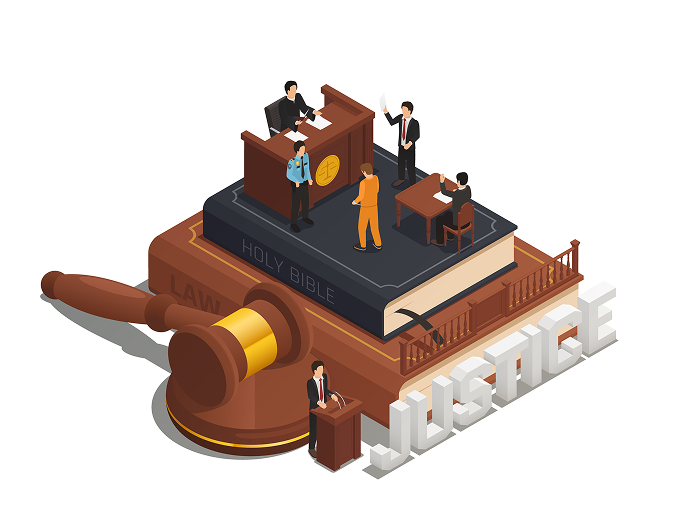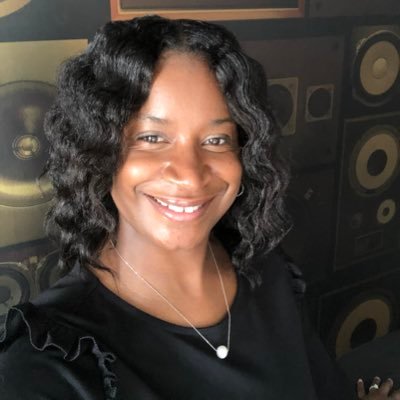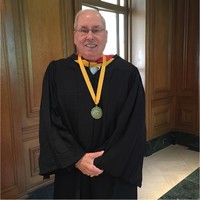
What is a Copyright Expert Witness?
A copyright expert witness is a legal professional who provides expert opinions on copyright infringement, copyright notices, and copyright limitations. They may also submit reports on a creator’s exclusive rights to reproduce works, prepare derivative works, calculate damages, and assess the unauthorized distribution of copyrighted material.
What is the Role of a Copyright Expert Witness?
A copyright expert witness follows four key steps when evaluating a case:

- Experts compare disputed works to determine similarities, originality, and potential infringement.
- Copyright Infringement: Analyzing whether material was copied, distributed, or used without permission.
- Originality Analysis: Determining if a work meets the originality requirements for copyright protection.

What are the Qualifications of a Copyright Expert Witness?
To be an effective expert witness, the following qualifications are essential:
Must have deep expertise in IP law, copyright law, and the Copyright Act.
Legal and financial expertise are critical for assessing copyright infringement damages.
Experience in specific industries such as software, media, publishing, or medical devices.
Experience in providing expert opinions and testimony in previous legal cases.
How to Hire a Copyright Expert Witness?
When selecting an expert witness:
- Consider experience, specialty knowledge, and prior testimony.
- Check their previous testimonies and ensure they can clearly explain complex copyright issues to a non-expert audience.
- Ask for references and case histories to evaluate their credibility and reliability in court settings.
- Make sure they can meet deadlines, communicate effectively, and remain impartial under cross-examination.
What Types of Cases Require a Copyright Expert Witness?
Copyright Infringement Lawsuits
Cases where copyrighted material is copied, distributed, or used without authorization. These cases can involve direct copying or more subtle forms like derivative works. Courts typically assess whether the use was substantial and if fair use defenses apply. Expert witnesses can play a key role in analyzing the originality of the work, the extent of copying, and industry practices regarding content usage.
Ownership Disputes
Cases where multiple parties claim ownership over copyrighted works. A copyright expert can help trace the origin of a work, evaluate contribution levels from various parties, and determine who holds the legal rights. These assessments are crucial for resolving who can exploit or license the work.
Licensing and Royalty Disputes
Disagreements over licensing agreements and royalty payments. Common issues include unauthorized sublicensing, underreported revenue, or breached exclusivity clauses. A copyright expert witness can interpret contract language, assess usage data, and calculate accurate royalty figures—often providing key testimony to support or challenge claims.
What are the Examples of Copyright Cases?
- Legal disputes over online content, software, and digital media.
- Statistics show that 58% of online copyright cases involve software piracy.
- One of the most prominent areas of concern is software piracy. According to recent statistics, 58% of online copyright cases involve software piracy, reflecting the widespread unauthorized use and distribution of proprietary software.
- This figure underscores the need for robust digital rights management (DRM) and global cooperation in enforcement.
- Landmark case regarding the use of Java APIs in Android.
- The case spanned over a decade, highlighting the tension between innovation and IP protection in software development. The U.S. Supreme Court ultimately ruled in 2021 in favor of Google, stating that its use of the APIs constituted fair use. This decision set a precedent for how APIs can be reused across platforms, potentially encouraging interoperability and innovation across the tech industry.
- Addressed whether software programs qualify for copyright protection.
- The court ruled in favor of Apple, affirming that software qualifies as a literary work and is subject to copyright protection—even in its compiled, machine-readable form. This case was instrumental in establishing the legal foundation for modern software copyright enforcement.
- Involved the unauthorized use of digital content.
- The case highlighted the growing issue of scraping and republishing protected digital content, a common practice among online aggregators. Although the specifics of the ruling were not widely publicized, the dispute emphasized the importance of clear licensing agreements and copyright notices in digital publishing.
- Focused on user-uploaded copyrighted content on digital platforms.
- The case sparked a global debate over platform liability, digital content monitoring, and safe harbor provisions under the DMCA. In 2010, the court sided with YouTube, citing its compliance with takedown notices. The decision reinforced the principle that platforms are not liable for user content as long as they respond to copyright claims promptly.
- Dispute over melodic similarities in "Blurred Lines."
- Critics of the ruling argued that it set a dangerous precedent that could stifle creativity and artistic inspiration, making artists wary of drawing influence from earlier styles. Others believed the ruling was a victory for musical originality and rightful ownership, reinforcing that artistic works cannot be copied, even subtly, without permission.
What are the Most Important Copyright Expert Witness Laws and Acts?
Copyright Act
The foundation of modern copyright laws, governing intellectual property rights. The Copyright Act, primarily referring to the U.S. Copyright Act of 1976, outlines the legal framework that protects original works of authorship, including literature, music, film, and software.
Copyright Law
Defines exclusive rights, limitations, and fair use provisions. Copyright law grants creators the right to control how their works are used—covering reproduction, public performance, adaptation, and more. These rights are balanced with public interest through limitations such as the fair use doctrine, first sale doctrine, and specific exemptions for libraries, education, and research.
Fair Use Exception
Allows limited use of copyrighted material without permission under certain conditions. Fair use is a legal doctrine that permits the use of copyrighted content without authorization when used for purposes such as criticism, commentary, news reporting, teaching, scholarship, or research.
The Music Modernization Act
Updates copyright laws to better protect artists and rights holders. Enacted in 2018, the Music Modernization Act (MMA) modernized outdated copyright laws to address the realities of music streaming and digital distribution.
Other Important Laws
- Visual Artists Rights Act: Protects moral rights of artists.
- Digital Millennium Copyright Act (DMCA): Addresses online copyright infringement.
Overall, the role of a copyright expert witness in trademark litigation is to provide specialized expertise and knowledge that can help everyone involved to reach a fair and just resolution of the case.
What are the Similarities and Differences Between Copyright and Intellectual Property Expert Witnesses?
Similarities:
- Both provide expert testimony on ownership, infringement, and damages.
- Both protect non-physical creations or innovations, such as ideas, expressions, inventions, and branding elements.
- Both are supported by international treaties (e.g., Berne Convention for copyright, TRIPS Agreement for all IP), offering cross-border protection under certain conditions.
Differences:
- Copyright focuses on creative works, while intellectual property law includes patents and trademarks.
- Patent cases often analyze technical claims, novelty, and utility; trademark cases focus on consumer confusion.
- Patents have shorter durations (usually 20 years), and trademarks can last indefinitely with proper renewal
What are the Similarities and Differences Between Copyright and Trademark Expert Witnesses?
Similarities:
- Both deal with intellectual property protection.
- Owners can take legal action against unauthorized or infringing use, including claims of confusion (for trademarks) or copying (for copyright).
- Registration (even if not mandatory) creates a public record, offering clearer evidence of ownership and deterring potential infringers.
Differences:
- Copyright protects original works, while trademarks protect brand identifiers.
- Trademarks aim to prevent consumer confusion and protect brand identity in the marketplace.
- Copyright usually lasts for the life of the author + 70 years.
Why Choose Us (Or Request Expert Advice)?
At Blue Ocean Global Technology, we provide expert consultation on copyright disputes, infringement analysis, and financial damages assessment. Our team collaborates with legal professionals, content creators, and corporate clients to evaluate the scope of copyright violations and quantify economic losses.
We offer litigation support, expert witness testimony, and detailed reports backed by industry standards and forensic

FAQs
Copyright expert witness
- What are the benefits of having a copyright expert witness?
They provide expert analysis, financial damage calculations, and testimony in court.
- What are the typical copyright expert witness fees?
Fees vary based on experience and case complexity, ranging from $200 to $500 per hour.
- What services might a copyright expert witness provide?
Copyright analysis, licensing agreement reviews, and expert testimony.
- How are copyright expert witnesses selected and retained?
Based on experience, specialty knowledge, and prior testimony.
- What kinds of cases require a copyright expert witness?
Infringement lawsuits, ownership disputes, and licensing disagreements.









